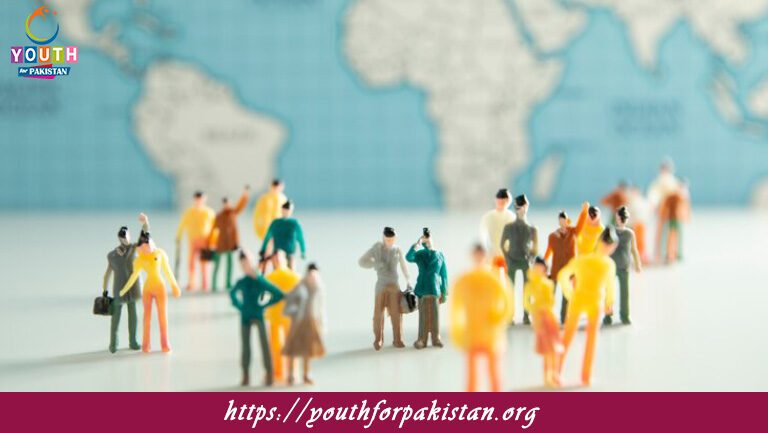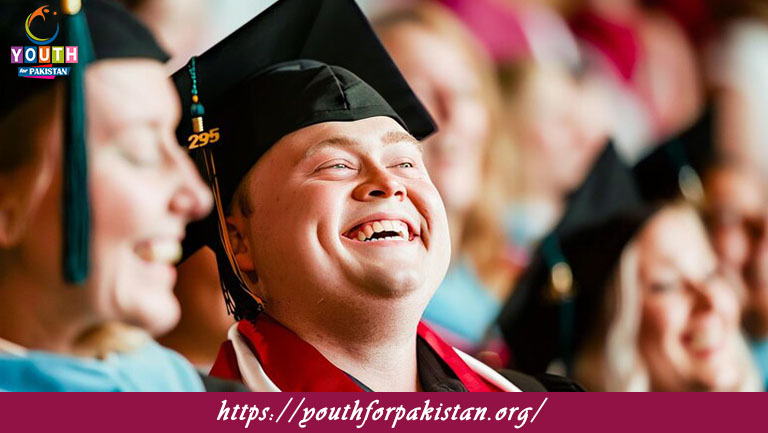Welcome to the Sociology MCQs with Answers. In this post, we have shared a Sociology Online Test for different competitive exams. Find practice questions with answers of the Sociology test online multiple choice questions with answers here. Each question offers a chance to enhance your knowledge regarding Sociology.
What is the primary focus of sociology?
a) The study of individual psychology
b) The study of societal structures and interactions
c) The study of biological processes
d) The study of economic systems
What is “socialization”?
a) The process of learning and adopting the norms and values of society
b) The process of economic development
c) The process of social networking
d) The process of psychological development
What does “culture” encompass in sociology?
a) The physical environment of a society
b) The social and material products of a society
c) The legal system of a society
d) The economic status of a society
What is “social stratification”?
a) The classification of people based on their job roles
b) The hierarchical arrangement of individuals in a society
c) The process of economic development
d) The division of labor in an organization
What does “role conflict” refer to?
a) The tension between different roles an individual occupies
b) The disagreement between groups in society
c) The competition for social status
d) The struggle between individuals and institutions
What are “norms” in sociology?
a) Legal codes and regulations
b) Shared rules and expectations for behavior
c) Economic practices
d) Scientific laws
What does “sociological imagination” refer to?
a) The ability to understand the impact of individual experiences on society
b) The ability to imagine future societies
c) The ability to create social policies
d) The ability to analyze historical events
What is “deviance”?
a) Behavior that conforms to social norms
b) Behavior that violates societal expectations
c) Behavior that is economically motivated
d) Behavior that is legally regulated
What is “primary socialization”?
a) The learning of norms and values in adulthood
b) The initial learning of norms and values in early childhood
c) The education received in schools
d) The influence of media on behavior
What does “anomie” describe?
a) A state of normlessness and breakdown of social norms
b) A type of social organization
c) A form of government
d) A method of research
What is “social mobility”?
a) The movement of people within a social network
b) The movement between different social classes
c) The migration of people between countries
d) The movement within a family unit
What does “collective consciousness” refer to?
a) The individual awareness of social issues
b) The shared beliefs and values of a group
c) The knowledge of scientific theories
d) The focus on individual achievements
What is “role strain”?
a) Stress from managing multiple social roles
b) Difficulty in performing a single social role
c) Conflict between social roles
d) The process of role development
What is “institutional discrimination”?
a) Discrimination based on personal biases
b) Discrimination that occurs within societal institutions
c) Discrimination based on economic status
d) Discrimination in informal settings
What does “gender role socialization” involve?
a) Learning about gender-specific roles and behaviors
b) The study of gender identity in children
c) The development of gender-specific skills
d) The process of cultural exchange
What is “social capital”?
a) The financial resources of an individual
b) The network of relationships and social connections
c) The educational qualifications of an individual
d) The economic status of a society
What is “symbolic interactionism”?
a) The study of the physical environment
b) A theoretical perspective focusing on symbols and meanings in social interactions
c) The analysis of economic systems
d) The study of historical events
What does “social control” refer to?
a) The methods used to enforce societal norms and rules
b) The regulation of technological advancements
c) The management of economic resources
d) The development of educational standards
What is “ethnocentrism”?
a) The appreciation of cultural diversity
b) The belief that one’s own culture is superior to others
c) The process of cultural exchange
d) The study of cultural patterns
What does “urbanization” refer to?
a) The decline in city populations
b) The increase in population and development of urban areas
c) The migration of people to rural areas
d) The development of agricultural practices
What are “socialization agents”?
a) Institutions that enforce societal norms
b) Groups and individuals that influence behavior and attitudes
c) Social researchers
d) Organizations that provide education
What is “social change”?
a) The maintenance of existing social norms
b) The transformation of societal structures and cultural norms over time
c) The development of individual behavior
d) The analysis of historical events
What is “postmodernism” in sociology?
a) A focus on modern technology and its impact
b) A theoretical perspective that critiques traditional theories and emphasizes deconstruction
c) A study of historical social movements
d) An analysis of economic systems
What is a “social role”?
a) The set of expectations and behaviors associated with a particular status
b) The financial responsibilities of an individual
c) The process of role conflict
d) The development of role skills
What is “social cohesion”?
a) The division of labor within a society
b) The bonds and connections that hold a society together
c) The development of social policies
d) The process of economic development
What is “role exit”?
a) The process of adopting a new role in society
b) The transition of leaving or relinquishing a social role
c) The conflict between multiple roles
d) The development of role skills
What does “social integration” involve?
a) The development of individual behavior
b) The process of bringing diverse groups into a cohesive society
c) The management of economic resources
d) The analysis of historical events
What is “cultural relativism”?
a) The belief in the superiority of one’s own culture
b) The practice of understanding and evaluating cultures based on their own values
c) The process of cultural exchange
d) The study of cultural artifacts
What does “social inequality” refer to?
a) The equality of opportunities within a society
b) The unequal distribution of resources, opportunities, and privileges
c) The standardization of social roles
d) The harmony between different social groups
What is “bureaucracy” in the context of sociology?
a) The study of historical organizations
b) A formal organizational structure characterized by hierarchical authority and standardized procedures
c) The process of social integration
d) The development of informal groups
What is “social interaction”?
a) The exchange of information through technology
b) The process by which individuals act and react in relation to others
c) The development of social policies
d) The analysis of economic systems
What is “functionalism” in sociology?
a) A perspective that focuses on the functions and stability of societal structures
b) A perspective that critiques societal inequalities
c) A study of historical social changes
d) An analysis of economic systems
What does “the looking-glass self” concept refer to?
a) The perception of self based on how others view us
b) The study of self-esteem
c) The process of self-development
d) The impact of technology on self-perception
What is “social exchange theory”?
a) The analysis of economic transactions
b) A theory that posits social behavior is based on the exchange of rewards and costs
c) The study of communication patterns
d) The development of social policies
What is “institutionalized racism”?
a) Personal racial biases
b) Racial discrimination embedded in societal institutions
c) The process of racial integration
d) The study of racial interactions
What does “functionalism” in sociology emphasize?
a) The role of social conflict
b) The interdependence and functions of societal components
c) The importance of individual agency
d) The influence of historical events
What is “self-fulfilling prophecy”?
a) A prediction that leads to its own fulfillment
b) A form of personal development
c) A technique for social influence
d) A method of psychological assessment
What is “alienation” in a sociological context?
a) The process of integrating individuals into society
b) The feeling of disconnection or estrangement from society or work
c) The development of social networks
d) The process of cultural exchange
What does “class consciousness” refer to?
a) Awareness of one’s social status
b) Understanding of social hierarchies and class struggles
c) The process of achieving economic success
d) The development of personal identity
What is “socialization”?
a) The process of learning and adopting social norms
b) The process of social change
c) The development of economic policies
d) The study of historical events
What does “social constructionism” propose?
a) The study of physical environments
b) The idea that social phenomena are created and maintained through social interactions
c) The analysis of economic systems
d) The development of legal frameworks
What is “role taking”?
a) The process of assuming different roles in society
b) The ability to understand and adopt the perspective of others
c) The analysis of role conflict
d) The development of personal identity
What does “social pathology” refer to?
a) The study of physical diseases in societies
b) The analysis of social problems and their causes
c) The development of health policies
d) The process of social integration
What is “cultural lag”?
a) The delay in the adoption of new technologies
b) The gap between cultural beliefs and technological advancements
c) The process of cultural assimilation
d) The study of historical events
What does “symbolic interactionism” emphasize?
a) The importance of symbols and meanings in social interactions
b) The role of economic factors in society
c) The impact of historical events on society
d) The development of social policies
What is “power” in a sociological context?
a) The ability to influence or control others
b) The economic resources of an individual
c) The social status of a person
d) The legal authority in a society
What is “groupthink”?
a) The process of individual decision-making
b) The tendency for group members to conform to consensus opinions, avoiding dissent
c) The analysis of social roles
d) The study of individual behavior
What does “social identity” refer to?
a) The individual sense of self
b) The collective identity and roles of a group
c) The legal status of an individual
d) The economic position of a person
What is “ethnography”?
a) The study of physical artifacts
b) The systematic study of people and cultures through direct observation
c) The analysis of historical documents
d) The development of theoretical models
What does “deviance” refer to in sociology?
a) Behavior that adheres to societal norms
b) Behavior that violates societal norms
c) The process of social integration
d) The development of social roles
If you are interested to enhance your knowledge regarding Physics, Chemistry, Computer, and Biology please click on the link of each category, you will be redirected to dedicated website for each category.










